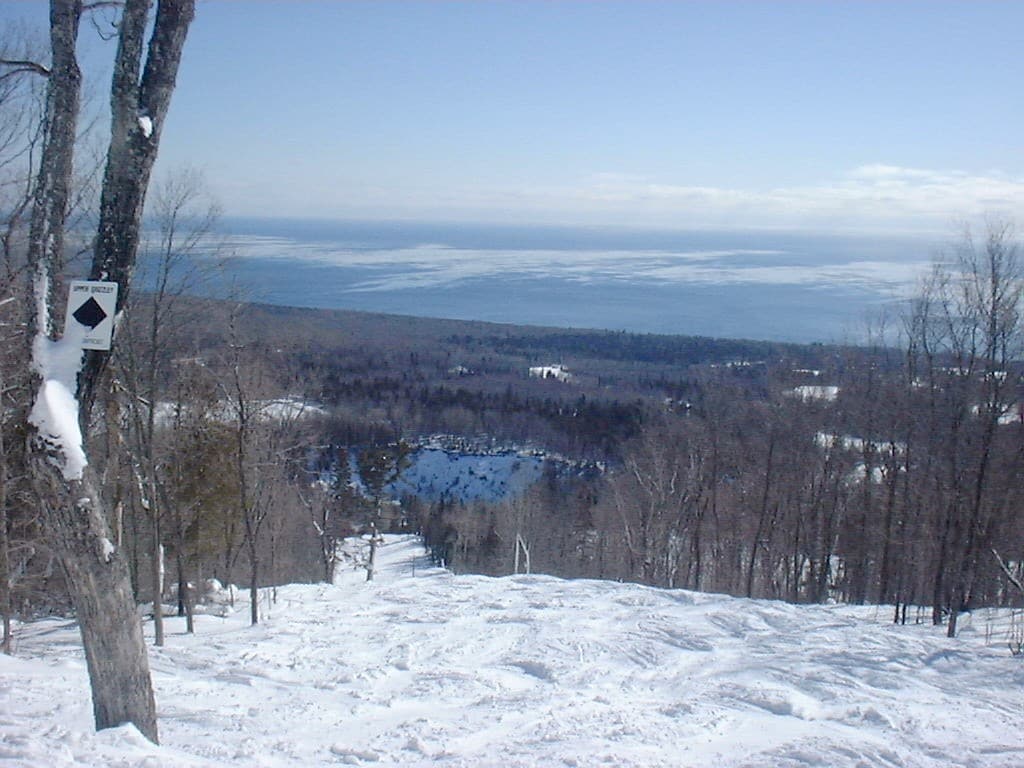
The Superior National Forest announced late last week that it is denying a permit to Lutsen Mountains ski resort to expand onto nearly 500 acres of adjacent public land. The agency cited impacts to tribal resources, sensitive and unique natural resources, the Superior Hiking Trail, backcountry skiing, and more. Its decision comes after Lutsen requested the Forest Service pause its review in July, which the agency said it would honor. But it now says the request was not a formal withdrawal, and thus the Forest Service legally needed to complete its review process.
Environmental review of the proposed expansion began in 2021. More than 1,000 comments were submitted during a public input period on the draft Environmental Impact Statement.
“Through input from the public and partners, consultation with our local Tribes, along with the environmental analysis, the Forest made a decision of ‘No Action’ for the Lutsen Mountains Proposed Expansion Area,” said Tom Hall, Superior National Forest Supervisor, “The [National Environmental Policy Act] process is designed to include public engagement to ensure federal actions consider all relevant information and potential impacts of a proposed project prior to approving a project. This information and the analysis informed our decision.”
Then, in May of this year, the Forest Service signed a memorandum of understanding with Native American tribes in northeastern Minnesota to collaborate on resource management. Lutsen Mountains said that agreement contributed to its desire to hold off on the expansion proposal.
Tribal opposition
Three tribes responded to the Forest Service’s rejection with a statement of support for the decision. The Bois Forte Band of Chippewa, the Fond du Lac Band of Lake Superior Chippewa, and the Grand Portage Band of Lake Superior Chippewa say the project would have negatively impacted a significant sugar maple stand that has long been significant to the bands.
“For too long, the Bands’ treaty-reserved rights to hunt, fish, and gather within the 1854 Ceded Territory have taken a back seat to private interests,” said Cathy Chavers, Chairwoman of the Bois Forte Band of Chippewa. “We commend the Forest Service for upholding their responsibility to protect our remaining treaty resources. This is the right decision.”
Ojibwe tribes ceded land in northeastern Minnesota to the U.S. government in the 1854 Treaty of La Pointe. The tribes retained perpetual rights to hunt, fish, and gather on the lands. Yet, in the intervening years, through sales of property to private owners and other reasons, the bands have lost access to about 80 percent of their treaty lands.
“At this rate, looking 169 years ahead, Band members will not have any treaty resources to rely on at all,” said Shane Drift, Bois Forte District I Representative. “That’s why we are trying to protect what little we have left.”
The Forest Service says that it found, through its analysis, documentation of sugar bush camps in the ski resort area that were used by local Ojibwe people as far back as the mid-19th century.
Economic and environmental impacts
In addition to its impacts on tribal resources protected by treaty rights, the Forest Service found that the proposal could significantly increase erosion and harm water quality in the Poplar River and other water bodies. Slightly more than half the area proposed for tree clearing for ski runs has soils classified as “severe” or “very severe” in regards to erosion potential.
While Lutsen Mountains has said it needs to expand its skiing areas and amenities to stay competitive and keep up with demand, the company has acknowledged it needs to work with tribes from the beginning of the process.
“While our small family business has a special role in our community’s economy, we believe we have much to gain in terms of understanding, learning, and appreciating the culture and history of the tribes in our area,” Charles Skinner, President of Midwest Family Ski Resorts, said in a statement. “Ultimately, we believe that any potential uses of treaty lands go beyond merely avoiding ‘net losses’ and instead improve Tribal interests while also protecting the ecology of our beautiful region.”
According to the Forest Service analysis, Lutsen Mountains’ current economic impact comprises about 5.5 percent of Cook County’s economy. The proposed expansion was predicted to slightly more than double that impact.
More information:
- Lutsen Mountains Ski Area Expansion Project – U.S. Forest Service
- Superior National Forest decision nixes Lutsen Mountains’ expansion plans – Star Tribune

